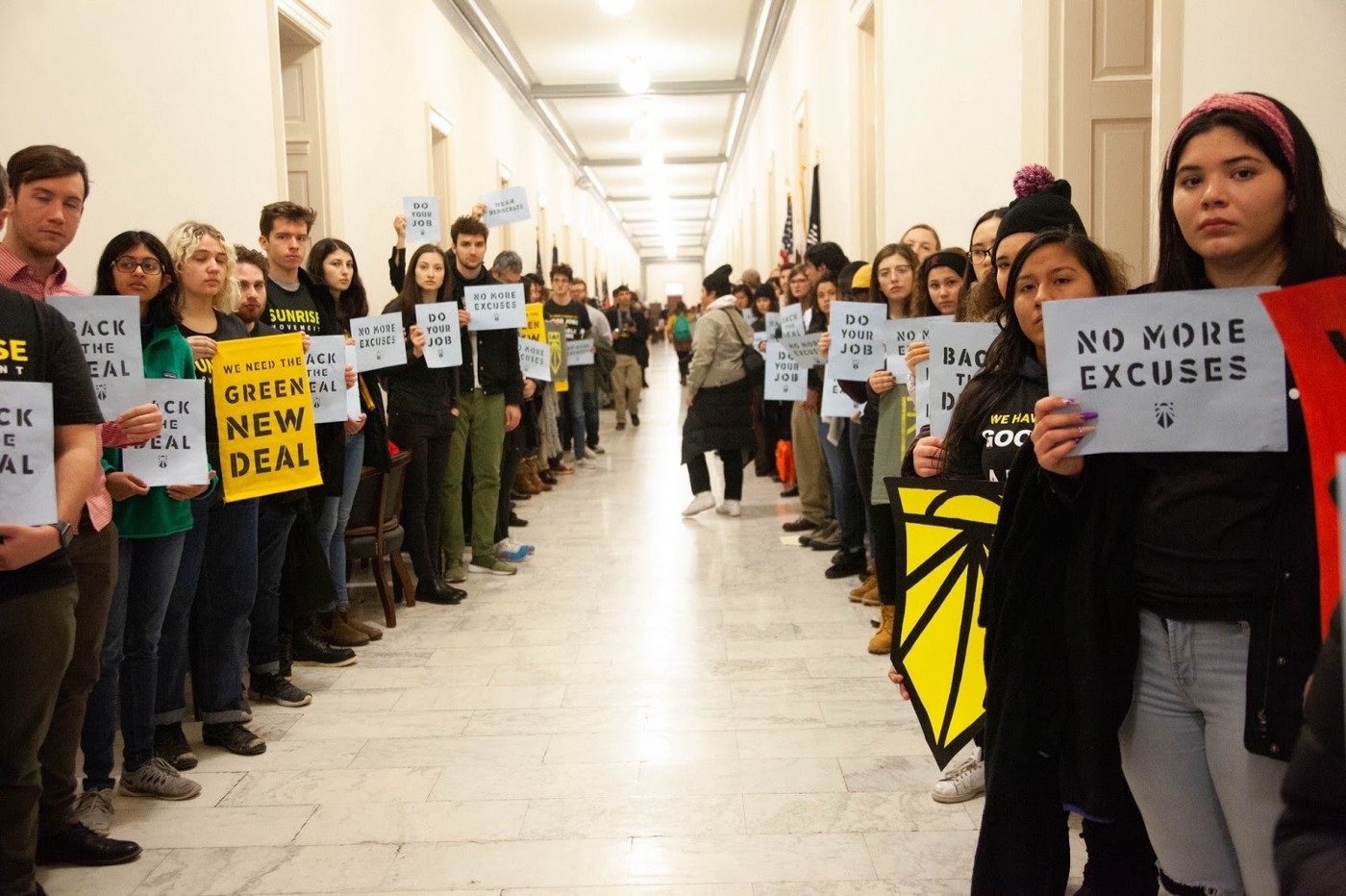Act or be acted on.
Canada’s unions need to play a much larger leadership role on climate change, not just because it’s also about economic policy that directly affects the livelihood of their members, but also because there’s a good chance we won’t get where we need to go without them helping to get things done.
Recent job losses in Oshawa and Alberta share a common denominator — the internal combustion engine. It’s a marvellous invention that powers our society, but turns out it’s also driving our life-support systems to their breaking point. We have no choice but to replace it, and fast.
We’ve known this for decades, and we’ve also known that a combination of new technology (like electrification) and old policy (like public transport) can effectively eliminate internal combustion engine use, but we’ve been too slow to redesign our economy around this emerging new reality.
We Canadians talk a good game about moving to where the puck is going, but we sure don’t act like it. If we did, then the $9-billion automaker bailout in 2009 would have looked different, insisting that automakers shift rapidly towards making low or no emission vehicles in Oshawa and other Canadian cities.
We recently followed that up with a $4.5-billion purchase of an old oil pipeline, doubling down on the dying internal combustion engine economy rather than helping Alberta’s workers transition to what’s next.
These large public expenditures show that Canadians governments are willing to spend big when there’s a perceived crisis. That’s good for temporarily protecting existing jobs and the families who depend on them, but unless it sets us up for where the puck is going, it’s not good for creating and keeping new jobs, particularly when other countries — our competitors — are skating well ahead of us.
And it’s not just cars and oil. Every aspect of our society and economy will need rapid retooling to virtually eliminate emissions over the next 30 years. The implications for workers and how they are organized are massive.
Act or be acted on. What is the role of Canada’s unions in this transition? Who gets to chart the course and make the decisions? How are we going to ensure that workers aren’t just left behind, but are helping lead the way?
Canadian labour has been relatively quiet during the current climate debate, probably because it has been so limited to carbon pricing, which feels a step removed from traditional union issues. But what if the debate was explicitly recast as about creating good new jobs on a massive scale, about creating a just new economy, and about taking care of people through the transition?
That’s the premise behind the proposed Green New Deal being championed by Alexandria Ocasio-Cortez and many others in America. It’s catching fire precisely because it’s a bold plan equivalent to the scale of the challenge while proactively combining the creation of new jobs with the reduction of emissions.
It’s the kind of plan that unions could loudly champion, putting them at the forefront of not only helping to secure a livable planet for everyone, but also of charting what Canada’s economy will transition to over the coming decades and putting workers in the driver’s seat.
Clayton Thomas-Müller has written about what an equivalent initiative could look like in Canada, and about the importance of doing this in full partnership with Indigenous peoples. Also, the Blue Green Alliance has been working for years in Canada on the types of ideas and policies that could serve as its foundation.
But what’s needed is a scale of ambition by Canada’s unions that’s unprecedented — a large, well-funded, and well-coordinated campaign in all corners of the country. It would be an opportunity for unions to go on offence for a change, rather than just fighting rear guard actions against conservative governments. And it could help promote solidarity and unity both within labour and with a wide range of other actors.
The need is urgent. Scientists just gave us 12 years to make a serious dent in emissions or things get really ugly. There’s a saying on a placard I’ve seen at rallies that reads “There are no jobs on a dead planet” that’s usually felt far enough away to not worry about too much. No longer.
Canada is on track to miss our modest climate targets, and even our more progressive governments so far lack the will to fix that. Canada’s unions represent over four and a half million Canadians, the largest organized group of people in the country and potentially a powerful force behind a bold new vision for what Canada will look like in the coming decades while doing our part on climate.
Act or be acted on. I hope Canada’s unions choose to act. ![]()
Read more: Labour + Industry
















Tyee Commenting Guidelines
Comments that violate guidelines risk being deleted, and violations may result in a temporary or permanent user ban. Maintain the spirit of good conversation to stay in the discussion.
*Please note The Tyee is not a forum for spreading misinformation about COVID-19, denying its existence or minimizing its risk to public health.
Do:
Do not: